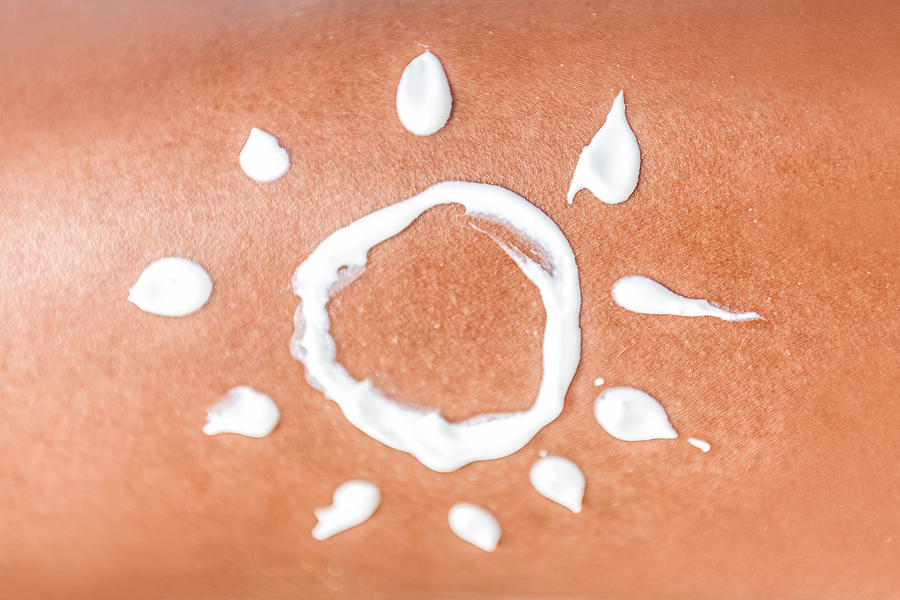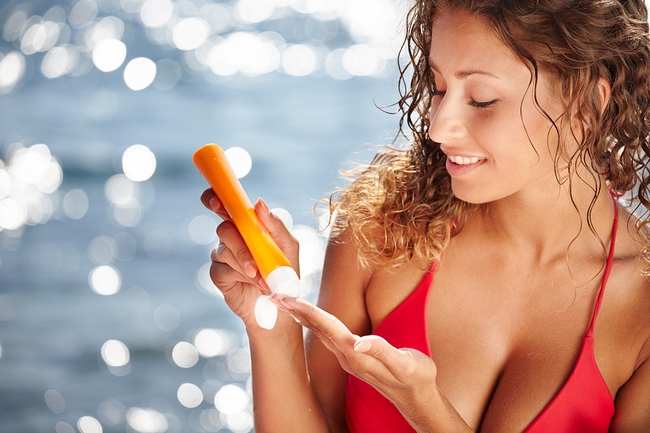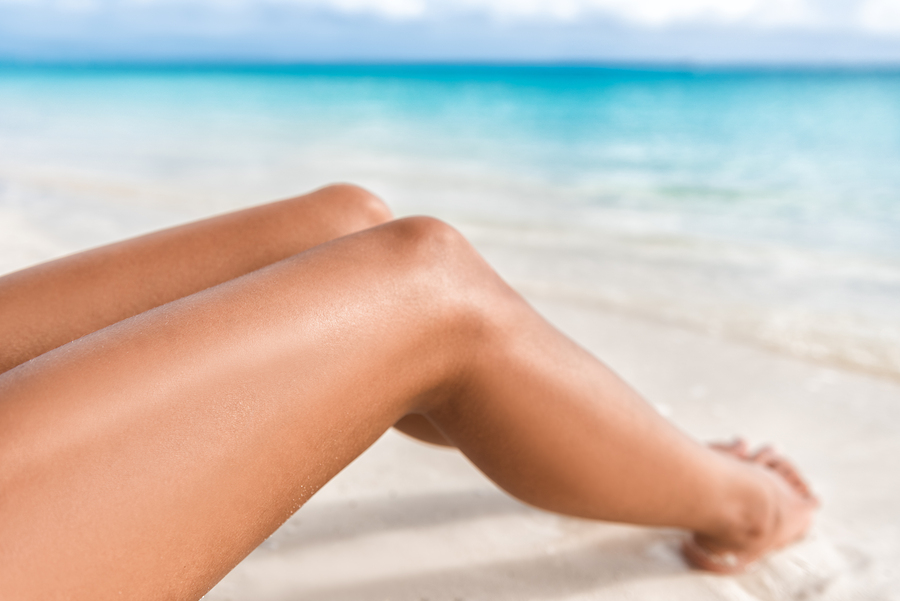- Make It Yourself Lavender Heart-Shaped Bath Bombs!
- 20 Things You Never Knew About “Down There”
- 12 Best Foods For Those Suffering From Arthritis Pain
- 12 Personal Hygiene Mistakes Almost Everyone Makes (Mom Never Told You About #4!)
- 15 Medicinal Plants And Herbs From The Cherokee People
- 12 Mind-Blowing Benefits Of Drinking Coconut Water During Pregnancy
- 12 Outstanding Winter Foods That Won’t Fatten You Up Like A Christmas Turkey
Everything You Need To Know About Sunscreen This Summer

Photo credit: bigstock.com
Summer is fast approaching so you should start getting ready now. It’s never too early to have the best sunscreens available in your beach tote when you are ready to hit the surf and sand. Here is Sunscreen 101 – all the information you need to make the right decisions to protect your skin throughout the burning hot days of summer.
What is Sunscreen?
When you are out in the summer, you will need something that will put a barrier between your skin and the ultraviolet rays (UV) of the hot sun. The correct sunscreen will be able to protect you without any unnecessary side effects. Sunscreen is regulated by the Food and Drug Administration (FDA) and it is available without a prescription over the counter.
What is the Best Kind of Sunscreen?
One thing you must remember to look for when buying the best sunscreen is to find one that has “broad spectrum” on the label. That means it will protect your skin against the two different kinds of UV rays. Also look for a sunscreen that has at least a 30 SPF and is water resistant.
How Much Sunscreen is Needed?
At least 1 ounce of sunscreen should be applied to the skin before exposing yourself to the sun. Make sure that you put your sunscreen on at least 20 minutes before you go outside and reapply it every two hours.
Are There Other Kinds of Protection from the Sun?
Here are additional ways you can protect your body and skin from the harmful rays of the sun:
- Special swimwear that blocks UV rays
- Polarized sunglasses
- A large straw hat with a wide brim
- Cover up with long sleeve shirts and long pants
There are 14 things you should know about sunscreen:
1. Sunscreens have not been proven to prevent cancer
Melanoma is one of the most severe kinds of skin cancer but even with sunscreen cases of it have tripled for the last 35 years.
Continue to Page 2

Photo credit: bigstock.com
2. Vitamin A in sunscreen could speed up the beginning of skin cancer
Vitamin A has been added to sunscreen products and many cosmetics. Do not use any sunscreen that lists vitamin A as one of its ingredients.
3. High SPF listings could be incorrect
Be aware of what SPF number your sunscreen is and act accordingly. It was found that people who used sunscreen with higher SPF numbers used too little and didn’t reapply it as often as they should because they assumed they were sufficiently covered.
4. Sunscreens don’t prevent all kinds of damage from the sun
The one thing sunscreen does do is prevent sunburns, but not any other kinds of damage to the skin.
5. You will find more effective sunscreens from European brands
Europe has stronger forms of sunscreen because they have access to four chemicals that the US is not allowed to add to their sunscreens yet. They will not be available in the United States until the FDA approves them.
6. You must keep track of your vitamin D if you stay out of the sun
Whenever you are exposed to the sun your body will produce vitamin D, so if you do not go out in the sun you need to make sure you are not deficient in this vitamin.
7. Some of the ingredients in sunscreen my cause allergies and affect hormones
The ingredients that are in sunscreen that could cause allergies and affect your hormones have been grandfathered in so the FDA allows them. Try to avoid sunscreen that has oxybenzone in it as it could be harmful.
Continue to Page 3

Photo credit: bigstock.com
8. An SPF 30 or more is needed to protect you from the sun
A sunscreen with an SPF 30 will block out around 97% of the UV rays so never go below this number.
9. Skin tones that are darker also need to cover up
Just because some people have darker colored skin does not mean they do not need to protect themselves from the damaging rays of the sun.
10. Don’t even bother with sunscreens that are SPFs 2-4
Sunscreens that have SPFs of 2 to 4 are unable to protect your skin from the damaging rays of the sun and the potential for getting skin cancer.
11. Sunscreens are not really sweatproof or waterproof
The newest labels for sunscreen products must not mislead consumers anymore making them think that these products are waterproof. They are water resistant but not waterproof.
12. Babies who are under six months of age should not be in the sun at all
It is not good for small babies who are less than six months of age to be out in the hot sun. If you have a child outdoors during the summer do not apply sunscreen to them as they will not be effective. Keep the child in a covered area in plenty of shade. Make sure they are dressed and their skin is covered with long sleeve shirts, long pants, and even a small hat.
13. You should always reapply your sunscreen every two hours
One application of sunscreen doesn’t last all day. The effectiveness of the protection provided from sunscreen will only last a couple of hours so make sure you reapply it when necessary.
READ ALSO: Sunglasses: The Key To A Healthy Summer Infographic
14. Learn what the SPF numbers really mean
The numbers that are on the right side of the SPF label are supposed to let you know how long you can stay outside without burning. The problem is oftentimes those figures are not correct. Apply your sunscreen, reapply it after a couple of hours, and don’t apply anything less than an SPF 30 when you are outdoors.
References:
































